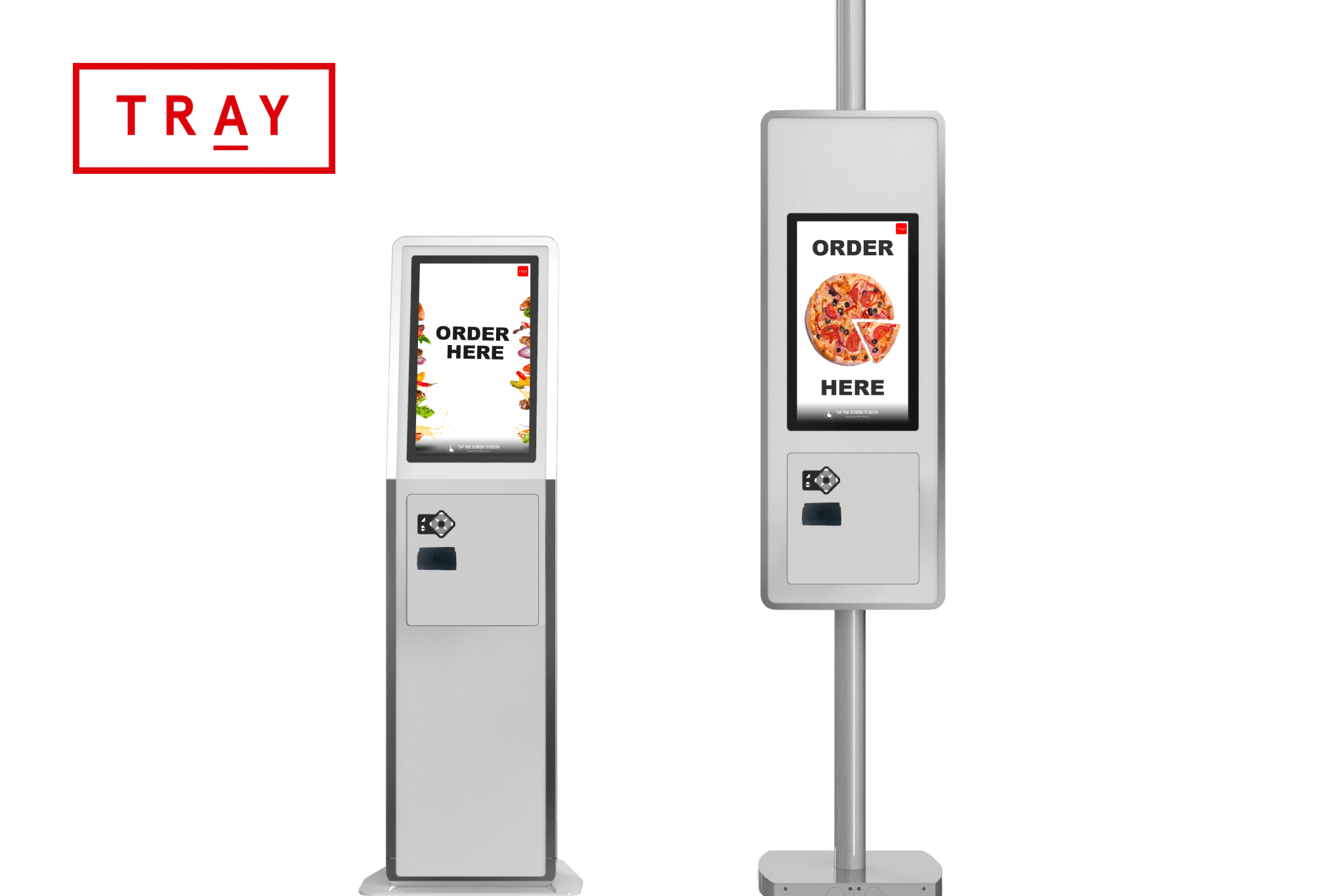Editor’s Note: AgFunder’s investment in TRAY was led by Leonardo Fonseca, an Executive-in-Residence at AgFunder and former CFO at General Electric O&G.
Ever walked into a quick-serve restaurant only to find an anything-but-quick line that makes you turn around and walk straight back out again? Those lines may soon become a thing of the past as self-order kiosks crop up in more and more fast-food chains and small retail businesses. Self-serve, whether by kiosk, web, or app, is fast becoming a must-have for every restaurant, and the potential for this market is enormous — $30.8 billion by 2024.
Not only do self-serve kiosks address soaring labor costs that are squeezing restaurants and shuttering many small businesses, but it turns out customers also prefer self-serve kiosks. And that’s just the appetizer. The emergence of self-serve kiosks could be the iPhone moment for the restaurant industry. Forget looking for Yelp reviews. Instead, you’re going to walk into a restaurant and with the swipe of your credit card, get a personalized menu based on what’s popular and items you’ve ordered before at other restaurants. Are you a vegetarian, have peanut allergies, lactose intolerant, or on a keto diet? No problem, the menu will present you with suitable choices. Once you create a smart interactive interface with the customer, it opens opportunities we can’t even imagine yet. It’s no wonder that McDonald’s apparently spent around $100 million developing their own automated order kiosks. Not everyone has the budget of a Fortune 500 company, so who is going to serve the other 650,000 restaurants in the US?
That’s where TRAY comes in. TRAY is an Arizona-based startup reimagining the Point-of-Sale system around self-service. Where most restaurant POS systems were built for back-of-the-house ordering, TRAY’s DNA from the beginning was built for on-demand service for the consumer. TRAY is a complete point of sale system for the enterprise that specializes in self-service ordering and, unlike other legacy POS companies, it was built with self-service at its core, not as an afterthought. Since 2013, the company has grown quickly by fulfilling an underserved need in the restaurant and amusement and entertainment industries for integrated self-service technology. While TRAY has the capability to offer an end-to-end solution, it is just as happy integrating the self-serve system with a client’s legacy POS system – this is a key differentiator from competitors.
In head-to-head bake-offs against some of the leading POS providers, TRAY keeps winning the contract. Frankly, a small company like TRAY has no business being in the same room as these other guys – including VC darlings like Toast – let alone beating them out. TRAY’s success really speaks to the strength of the product and the founder’s vision.
TRAY was founded in 2013 by Peter Kellis, a computer scientist with an undergrad and Masters at MIT who had worked at Google as a Product Manager. Inspired by his impatience for long lines, Peter developed a mobile order and payment app for busy bars and restaurants that quickly evolved into TRAY’s self-order kiosk technology and eventually a full POS system. You’d be forgiven for thinking that a POS system is a trivial piece of technology. Clients require hundreds of features including payments, accounting, integration with dozens of legacy systems…now add in a configurable interface for self-service that lets restaurants create their own custom menu design. Success in this business is 99% perspiration.
TRAY also had some great investors. While we can’t share them all just yet, they include leading New York PE firm Greycroft, an investor in Venmo, Plated, Shipt, and BlueCart, so they know a thing or two about the consumer, e-commerce, and retail startups.
While we’ve been tracking restaurant technologies in our annual investing reports since 2016, this is our first investment in the space and so partnering with expert investors like this gives us additional comfort, and we’re excited to continue to explore opportunities further downstream the agrifood tech value chain.





